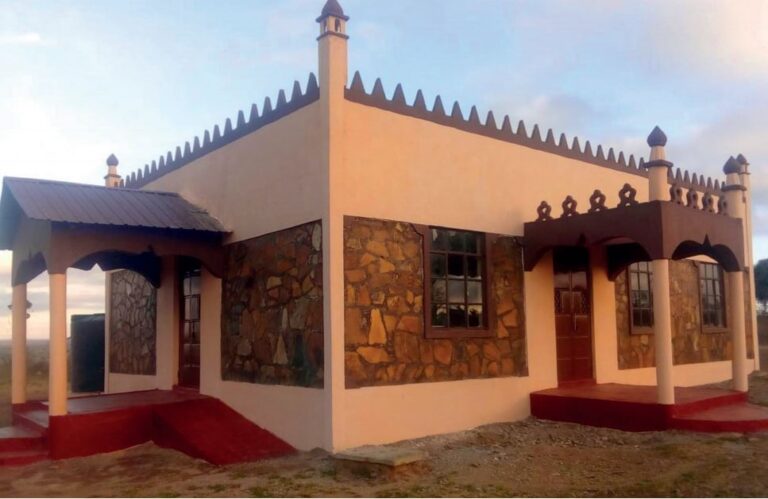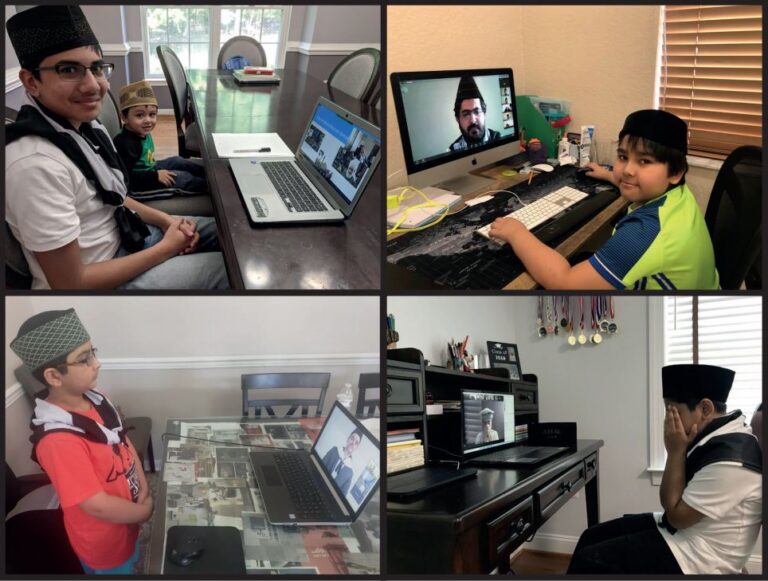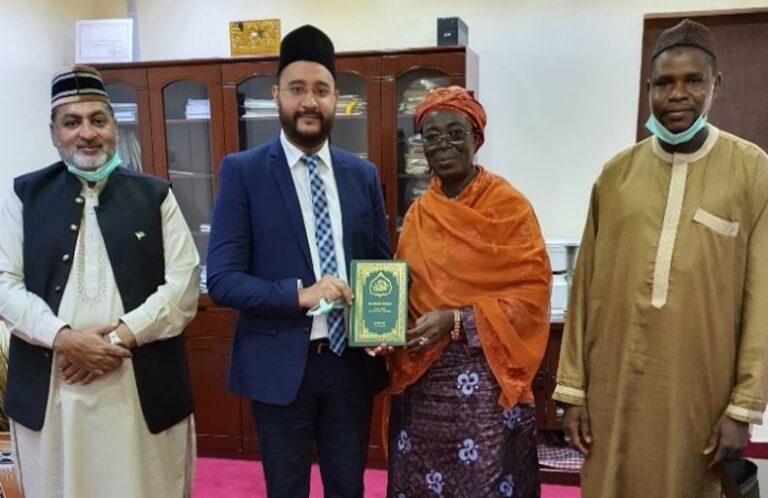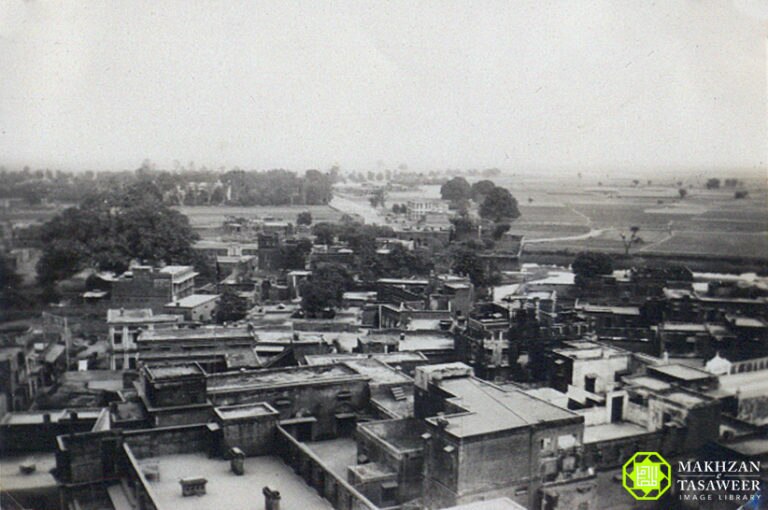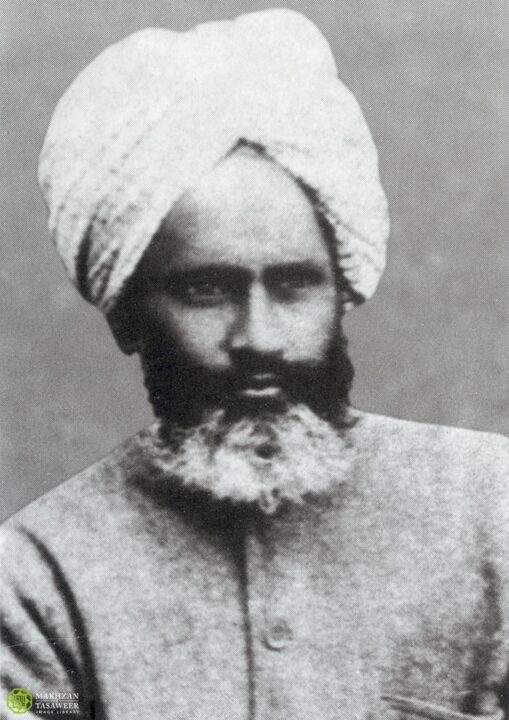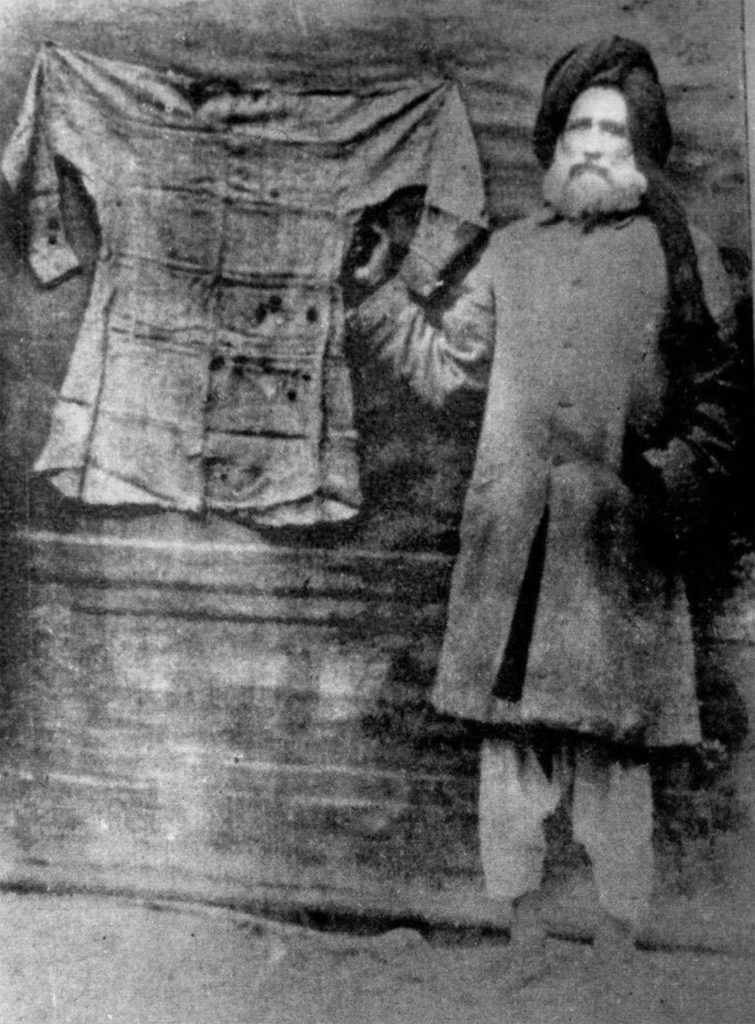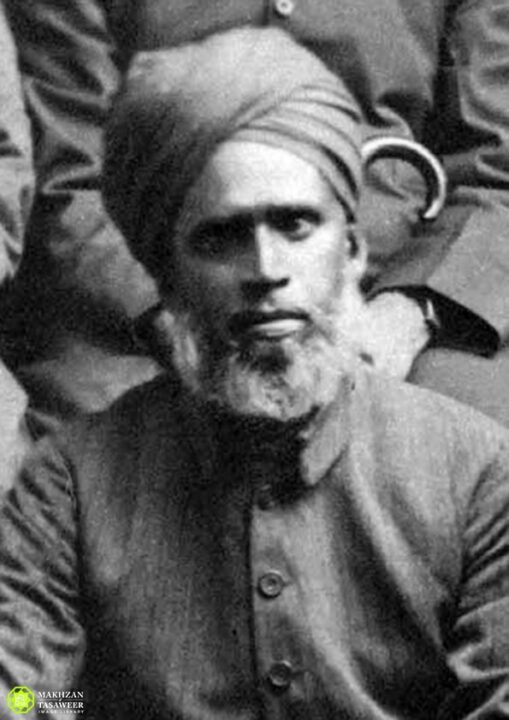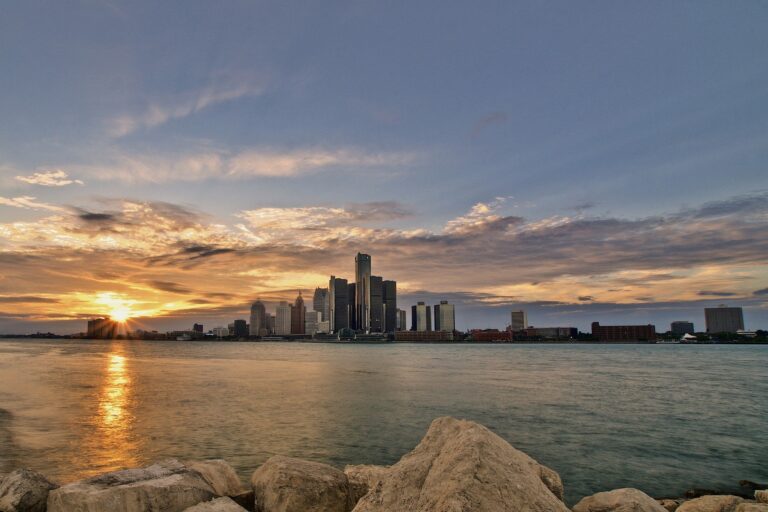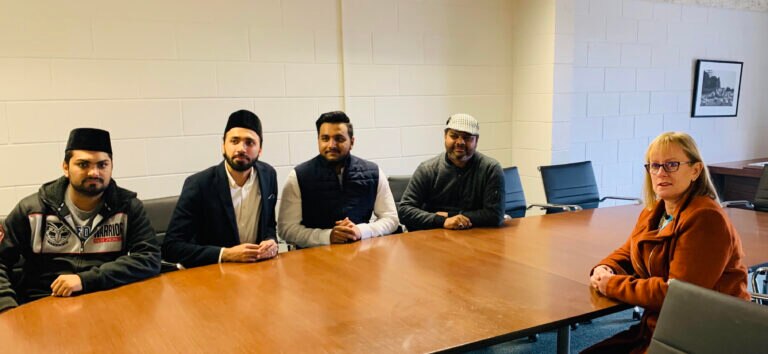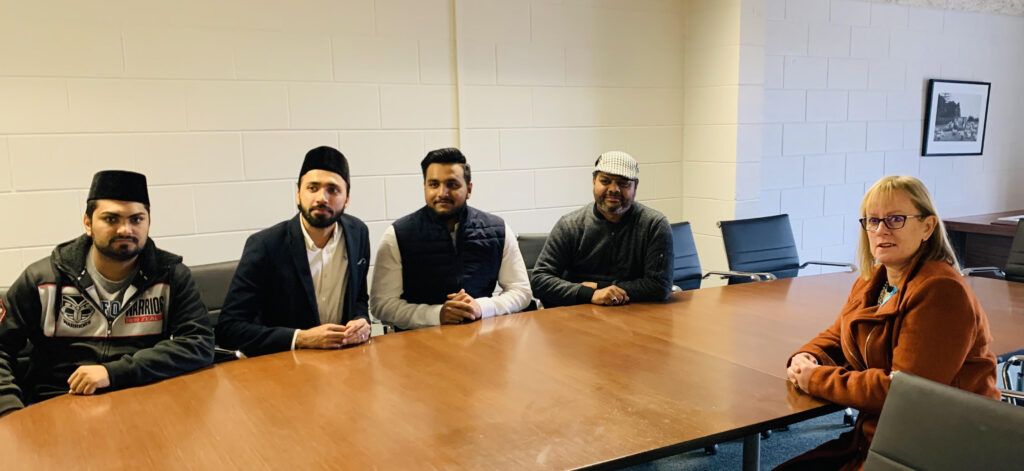Adnan Haider, France
The weekly newspaper Charlie Hebdo has been in the news since the first caricatures of Muhammad, peace and blessing of Allah be upon him. Describing itself as a satirical newspaper and which, at the time, had only 10,000 subscribers, the paper grew to 220,000 subscribers in less than a month, after the attacks of 7 January 2015, killing 12 people, including eight employees of the weekly newspaper.
The newspaper recently republished the caricatures of the Prophetsa of Islam in its special issue “Trial of the attacks of 7, 8 and 9 January 2015”; reactions from the French and international population quickly followed. Some spoke of incitement to hatred and provocation, while others of humour and freedom of speech.
In any case, the republication of these caricatures has seen sales of more than 200,000 copies. Internationally, countries such as Turkey and Pakistan are outraged at this misplaced humour; there has been a wave of demonstrations in Pakistan where French flags were burnt and where the demonstrators asked Muslims for a diplomatic and economic boycott with France.
After the attacks against Charlie Hebdo in 2015, the trend #JeSuisCharlie (I am Charlie) took shape on social networks and in the media, with the aim of expressing solidarity with the victims of the weekly and defending freedom of expression.

Despite the promotion of this trend by the French elite, many expressed their solidarity and indignation, but did not call themselves Charlie and found the satirical humour of the paper provocative, not respecting the sensitivity of religions and in some cases, even individuals.
If the indignation and passion of Muslim countries can be understood, whilst condemning the violent reactions such as the burning down of churches in Niger, the resentment from some of the French population, especially French Muslims, has more reason to be heard.
Without judging the humour of the newspaper, it is interesting to note that French humour based on freedom of expression is often subject to double standards. Indeed, in the 2 July 2008 issue of Charlie Hebdo, the cartoonist Siné ironises the rise of French politician Jean Sarkozy, referring in particular to his engagement to the Jewish heiress of the founders of the Darty group and a possible conversion to Judaism:
“He has just declared that he wants to convert to Judaism before marrying his fiancée, a Jew and heiress of the founders of Darty. He will go a long way in life, this little one” says Siné in his chronicle.
It was following this satire that on 16 July 2008, Siné was fired by the director of the publication Philipe Val, who justified his dismissal by stating that Siné’s words “could be interpreted as making the link between conversion to Judaism and social success, and this was neither acceptable nor defensible before a court of law”.

The court, however, did not entirely agree with him, since on 3 November 2008, when Siné sued Charlie Hebdo for wrongful breach of contract, the court ruled that “it cannot be claimed that the terms of Maurice Sinet’s column are antisemitic, nor that he committed a fault in writing them”, and the magistrates considered that “the media coverage of the break-up and the humiliating nature of his announcement, learned at the same time as the readers by the publication of the 16 July 2008 issue, caused Siné moral damage that should be compensated by allocating him the sum of 20,000 euros”.(www.lemonde.fr/actualitemedias/article/2010/12/10/charlie-hebdo-condamne-pour-le-licenciement-abusif-desine_1451578_3236.html)
It must be said that this case has not generated much debate in the media and that the freedom of expression that the newspaper and its supporters are trying to defend does indeed have limits, but these limits are chosen. Let us take up the words of the publication director Philipe Val; if Siné’s words could be interpreted as making the link between conversion to Judaism and social success, is it not the same for the caricatures of the Prophetsa of Islam that could be interpreted as making the link between Islam and terrorism? The aim here is not to promote humour that could be interpreted as antisemitism, nor to prove it right, but to find and define the limits of freedom of expression, and to propose the application of these limits for any kind of individual, social class, religion or community under the precepts of absolute justice.
During an address by Hazrat Mirza Masroor Ahmadaa in the Dutch parliament, a member of parliament and member of the People’s Party for Freedom and Democracy, Mr Han Ten Broeke asked Huzooraa the following question: “Do you accept that freedom of speech actually encompasses freedom of religion?”
An interesting question that was answered all the more pertinently by the Caliph:
“If you are just mocking, as I said in my address, and trying to ridicule the prophets or any leader of any religion, then there is a natural reaction that they will retaliate in the same manner; sometimes, they cannot control their patience.
“It’s a two-way flow, give and take; everybody should respect every person. These are the human values, so we should also consider human values. And as far as the law of land is concerned, I have already explained that if the law allows you to speak whatever you like, well, the law is made by people, and this is why there have been so many amendments from time to time in almost every part of the world; whenever you enact a new law, then after some time, you make amendments to it, which means that you yourself are not satisfied by the law you have. When the condition changes, you think that we should change the law or that this law does not give the satisfied solution to the problem of today.
“So you cannot say that the law is perfect, and if the law of the land is humiliating the leadership or any person whom you love, [you cannot say] it is right. You have the right to say whatever you like but in my opinion, you should not have the right to speak ill of somebody whom I love in front of me. Here in the Western world, if you have the right to openly speak against any person no matter if he is a prophet or a leader or whoever he is, I feel that human values should stop you from doing so even if the law allows it with the freedom of speech. You should put some restrictions on this freedom, otherwise there will be disturbance and frustration in the world and that is what you have been seeing. If you have experienced anything good with these reactions, then I will admit that you should continue like this, but if we see that there is a mass reaction from the Muslim world on this issue when you try to humiliate the Prophetsa, then I think we should consider whether we should emphasise those things which are hurting the sentiments of others. So in my opinion, human values are the most important things.”
This answer, brilliant as it may be, probably did not meet with the unanimous approval of the parliamentarians. It was after a few minutes of exchange with Michiel Servaes, a member of the Labour Party, whilst discussing freedom of expression, the caricatures published in Charlie Hebdo and Voltaire’s famous phrase presented by the parliamentarian, “I don’t agree with what you say, but I will fight to the death for you to have the right to say it” that the Caliph ended the debate with this unprecedented response that forced an almost instantaneous silence among politicians on the issue of freedom of speech.
Michiel Seraves said, “You are then arguing for a limitation for the freedom of speech; where you draw the line is apparently when people speak of others faith, and you would argue for a limitation there, but do you not see a risk that if you put in the law a limitation for the freedom of speech, it would actually be misused by political leaders or others to stop the debate in a country, because if you put one limitation in the freedom of speech, where do you draw the line?”
Huzooraa said, “I do not say that you legally put restrictions on the freedom of speech, but … we should realise the importance of peace and the importance of the sentiments of others. If we realise this, then every sane person will think twice before saying anything wrong. If, in your view, the peace of society is the foremost goal, then I think that despite the fact that you have the right to say anything you want, a sane person will think twice before saying anything. Even in your day to day matters, in your home, if you hurt the sentiments of your wife or your brother, there is a disturbance in the house and you would wish that you had not said these words.
“Everybody is free to say anything, but you cannot say anything anti-Semitic; you cannot speak about the Jews and what happened in the Second World War, even though everybody has a right, but it is widely disliked; and in some countries, if you speak about this, the law will get hold of you. It means there are some restrictions [for freedom of speech] somewhere already imposed by the law.”
This is indeed the case in France, the country of “freedom” and standard-bearer of freedom of speech. Holocaust denial, a term created in 1987 by the historian Henry Rousso to designate the contestation of the reality of the genocide implemented against the Jews by Nazi Germany during the Second World War, i.e. the denial of the Shoah, thus consists in claiming either that there was no intention to exterminate the Jews, or that the means to carry out this extermination, notably the gas chambers intended to kill, did not exist. Holocaust denial is punishable under the Gayssot law in France.
The right and freedom to blaspheme evoked by President Emmanuel Macron and some French intellectuals therefore remains very partial. The pragmatic measures taken by the French government and the French media against the humourist Dieudonné Mbalambala confirms that this is not just a theory. The unanimous censorship and demonisation of the media against the humourist – considered the most favourite humourist of the French – does not go unnoticed. For several years now, Dieudonné’s humour has been the subject of much debate in France.
The comedian, who used to be on all French television channels, has been absent for a decade, his sketches are no longer sold over the counter, not to mention all the trials he continues to be subjected to. Recently, his YouTube account has even been shut down. Dieudonné has apologised, but has not stopped his humour against the Jewish community, something that will most definitively deprive him from show business.
The demonisation of the humourist does him more good than harm as he fills all the theatres and a very large part of the French population supports him. This popularity amongst the French people, despite media censorship, led former Prime Minister, Manuel Valls to publicly point the finger at him and promise to silence him.
Thierry Ardisson, a famous French presenter who once said, “If I want to make a caricature about Mohammed, a rabbi or Jesus Christ, I have to have the right to do it, that’s France!”, invited Dieudonné Mblambala after a sketch in which the latter played an orthodox Jew (probably one of his last television appearances) and said to him, “There’s one thing I don’t understand about this case. It’s that at no time did you feel the need to apologise and that you added to it; it’s so surprising, it’s so inadmissible that I’m shocked.“
Dieudonné said, “We live in a country where we have the right to express ourselves, and why is it that all of a sudden, on a subject, we can’t express ourselves?”
Thierry Ardisson said, “You know very well why we can’t express ourselves, because in this country we sent Jews to gas chambers during the war, and that creates a small problem nonetheless.”
Dieudonné said, “Well, in this country they sent hundreds of millions of black people to slavery for 400 years and yet that didn’t stop Michel Leeb from doing a sketch about black people which made me laugh; where he played a black man and at the end, he played a monkey and comparing the nostrils of black people with glasses. He wasn’t forbidden to do his job. He even got the Legion of Honour…”
Freedom of speech therefore has a choice to make, that satiring everyone without taking into account the sensitivities of those targeted, including Jews, or that of respecting the sensibilities of all individuals in society, regardless of their social class, colour or religion. The choice of Islam is clear and the practice of the Holy Foundersa of Islam is remarkable. That Prophetsa who is mocked by some in the name of freedom of speech is the one who was at the forefront of protecting the sensitivities of Jews and other citizens.
When a Jew was hurt by the words of a Muslim who said that Prophet Muhammadsa was superior to Mosesas, Muhammadsa commanded:
لَا تُفَضِّلُوْنِی عَلَی مُوسَی
“Do not say that I am better than Mosesas.”
Even if the Prophetsa confirmed what the Muslim was saying here, it would not be contrary to reality. As for the salutary quote from Voltaire, “I do not agree with what you say, but I will fight to the death for you to have the right to say it”, it is only verbal and ideological. Islam, on the other hand, demonstrated this in its practice many centuries before Voltaire was even born.
The first verses revealed to the Prophetsa authorising him to defend himself against the enemies who were trying to destroy Islam and its followers, declared in Surah Al-Hajj, verses 40 and 41, reads:
“Permission to fight is granted to those against whom war is made, because they have been unjustly treated – and Allah certainly has the power to help them. Those who have been unjustly driven from their homes, only because they have said: ‘Our Lord is Allah’. And if Allah had not allowed men to repel the transgressions of others, surely the cloisters and churches and synagogues and mosques, wherein the name of Allah is often mentioned would have been demolished. And Allah will certainly help whoever helps Him. Allah is indeed Strong and Mighty.”
This verse not only laid the foundation for freedom of speech, but commanded every Muslim to fight physically to defend it if conditions compelled them to do so. The symbolism of places of worship is undeniably linked to the sensitivity of believers and Islam gives it a central place in its teaching, so much so that cloisters, churches and synagogues were mentioned before mosques.
However, it is sad to note that some Muslims have not been able to comprehend this clear and marvellous teaching brought by the Prophetsa of Islam and practised by him and his Companionsra.
This is why the behaviour of some Muslims in Niger with regard to the caricatures is to be condemned as strongly as possible. The reality is that the clarity of this Islamic teaching can only be perceived by those who have accepted the long-awaited Reformer, the one prophesied by the Holy Founder of Islam.
What was the teaching of this Promised Messiah and Imam Mahdi? In his last publication, A Message of Peace, he proposed that if it helped, cows – which Hindus hold sacred – would not be consumed by Ahmadi Muslims, provided that the Prophetsa of Islam was not ridiculed and attacked.
Hazrat Mirza Ghulam Ahmadas stated:
“It is essential to show sincere sympathy for our Hindu brothers; kindness and generosity must govern our relations with them. We must avoid all things that might offend them, provided that they are not compulsory and not compulsory in the exercise of our religion. Thus, if Hindus accept and believe in good faith that our Holy Prophet is a true messenger of God, the apple of contention that is the slaughter of cows will also be removed. We are not obliged to use anything we believe is permissible; there are many things that are permitted to us but which we have never used. Kindness and tolerance towards Hindus is one of the precepts of our religion; among these is also the knowledge that God is one, without associates; and it is not contrary to divine law to give priority to one thing that is necessary and advantageous over another that is not.
“Believing that one thing is permissible and using it are two quite different things. Religion is that philosophy which prevents the use of the things forbidden by God and enjoins to follow the path of His pleasure; it advocates goodness, benevolence and sympathy for His creatures; and enjoins to accept, without making distinctions, all the prophets and messengers who came into the world at different times as envoys and reformers; and to work for the betterment of all mankind. This is the final word of our religion.”
He also states:
“Note how God in the Holy Quran teaches us courtesy and manners. He says: ‘And revile not those whom they call upon beside Allah, lest they, out of spite, revile Allah in their ignorance.’ (Surah al-An‘am, Ch.6: V.109)
“Although God teaches that idols have no reality, He advises Muslims not to vilify them and to advance their arguments with great courtesy; in short, not to provoke idolaters so that they do not insult God in return. Otherwise, Muslims will be solely responsible for these insults.
“On the other hand, what is the position of those who demean this great prophet of Islam, who insult him and who vulgarly seek to undermine his honour and character? It is this same prophet, in hearing whose name the great monarchs of Islam descend from their thrones; at whose orders they bow down and of whom they boast of being the humblest servants; is not such honour from God? To despise someone who is honoured by God is wishing to fight with God.”
As far as Charlie Hebdo is concerned, the real issue is not that of freedom of speech, but rather, the one that is addressed in most of the speeches that Huzooraa has made in parliaments; the one that is the fundamental basis for bringing lasting peace to societies: the principle of absolute justice.







